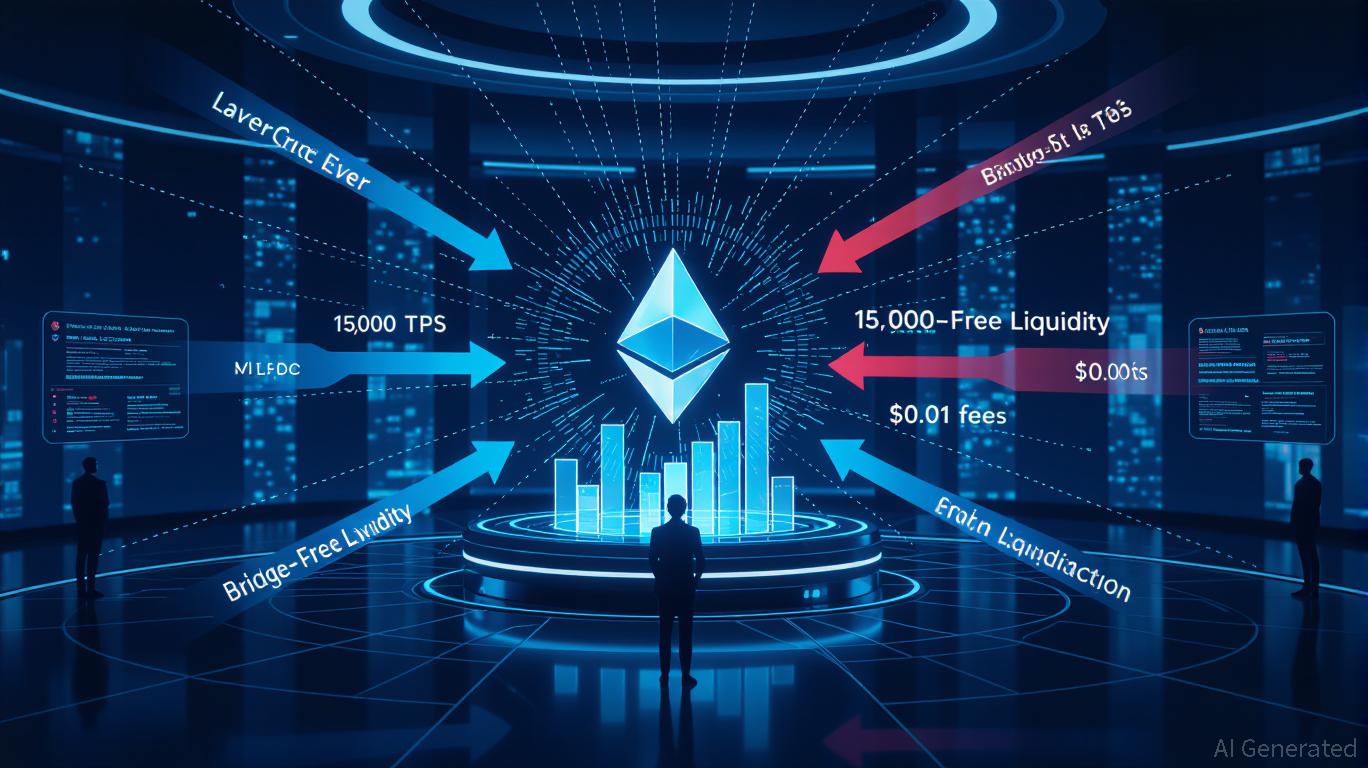Crypto's Challenge of Innovation: Is It Possible to Balance Privacy with Regulatory Requirements?
- a16z urges U.S. Treasury to exempt decentralized stablecoins from GENIUS Act, arguing current rules stifle innovation and misalign with real illicit finance risks. - The firm promotes decentralized identity and zero-knowledge proofs as privacy-preserving compliance tools, aligning with crypto developers and privacy advocates. - Senate's bipartisan crypto bill mirrors a16z's decentralization focus, proposing CFTC-led oversight and self-custody provisions to reshape regulatory frameworks. - Critics warn ex
The GENIUS Act, a legislative proposal from the U.S. Treasury designed to update stablecoin oversight, has sparked significant discussion around privacy and innovation in the digital finance sector. Venture capital powerhouse Andreessen Horowitz (a16z) has taken a prominent stance, urging that decentralized stablecoins be exempt from the Act. The firm argues that the current regulatory approach could hinder technological progress without effectively tackling genuine illicit finance threats. In a letter dated November 4 to Treasury Secretary Scott Bessent, a16z requested that regulators make it clear the Act does not apply to decentralized stablecoins—those managed by autonomous smart contracts rather than a central authority,
A16z’s advocacy is part of a larger movement calling for regulations that prioritize user privacy. Michele Korver, who leads regulatory affairs at a16z, pointed to decentralized digital identity as a way to improve compliance while maintaining privacy. “Decentralized identity solutions give people control over their personal data, lower cybersecurity threats, and help avoid excessive surveillance,” Korver stated, supporting the use of zero-knowledge proofs for secure transaction verification,

Meanwhile, legislative initiatives in Congress highlight the evolving nature of crypto regulation. On November 10, the Senate Agriculture Committee introduced a bipartisan bill on crypto market structure, reflecting a16z’s focus on decentralization,
On the other hand, some critics warn that exempting decentralized stablecoins could make anti-money laundering (AML) enforcement more difficult. Treasury analysis indicates that less than 1% of blockchain transactions are illicit, but regulators remain cautious about the potential for untraceable assets to facilitate crime,
As the Treasury moves toward finalizing the GENIUS Act’s rules, the discussion around decentralized stablecoins highlights a broader policy challenge: encouraging innovation while maintaining financial security. With proposals from a16z and the Senate pushing for a more sophisticated approach, the U.S. could establish a regulatory path that balances these competing goals—though the final direction remains uncertain as lawmakers and industry stakeholders continue to debate.
Disclaimer: The content of this article solely reflects the author's opinion and does not represent the platform in any capacity. This article is not intended to serve as a reference for making investment decisions.
You may also like
ZK Atlas Enhancement: Transforming Blockchain Expansion and the Next Era of DeFi
- ZKsync's ZK Atlas Upgrade (Oct 8, 2025) addresses blockchain scalability and interoperability via modular Layer 2/3 infrastructure. - Achieving 15,000 TPS with RISC-V Airbender prover, it enables near-zero fees and direct Ethereum liquidity access, enhancing DeFi adoption. - ZK token surged 50% post-upgrade, while projects like Grvt raised $19M to leverage its infrastructure, signaling institutional confidence. - Challenges include regulatory uncertainties and legacy system integration, though modular de

The Rapid Rise of ZK Technology: Could This Spark the Upcoming Crypto Bull Market?
- Zero-knowledge (ZK) technology addresses blockchain scalability via ZK rollups, enabling 43,000 TPS and 90% lower costs, as seen in ZKsync and StarkNet upgrades. - Institutions like Deutsche Bank and Sony adopt ZK-based solutions for confidential settlements and rights management, reducing gas costs by 70% for institutional transactions. - ZK rollups drive a $90B Layer 2 market by 2031, with StarkNet’s $72M TVL growth and venture capital inflows signaling institutional validation and commercial viability

Astar 2.0: Transforming Blockchain Foundations and Its Impact on DeFi
- Astar 2.0 enhances blockchain scalability via Polkadot's async protocol, achieving 150,000 TPS and 6-second block times. - Strategic partnerships with Sony , Mazda, and Japan Airlines expand real-world use cases beyond DeFi, including AI logistics and blockchain rewards. - A $3.16M ASTR purchase by a major investor in 2025 highlights growing institutional confidence in Astar’s hybrid infrastructure. - Analysts project ASTR could reach $0.80–$1.20 by 2030 if key upgrades and enterprise adoption milestones

Fed Focuses on Controlling Inflation Rather Than Boosting Economic Growth
- The Boston Fed urges delaying rate cuts until inflation nears 2% target, citing risks of premature easing in a still-inflationary environment. - Atlanta Fed's Bostic emphasizes inflation as the "clearer and more urgent risk" over labor market signals, reflecting hawkish policy divisions. - Fed officials consider resuming asset purchases post-October rate cut to maintain liquidity while avoiding inflationary spikes from tariffs. - Policy balancing act emerges: rate cuts could stimulate growth but risk rei